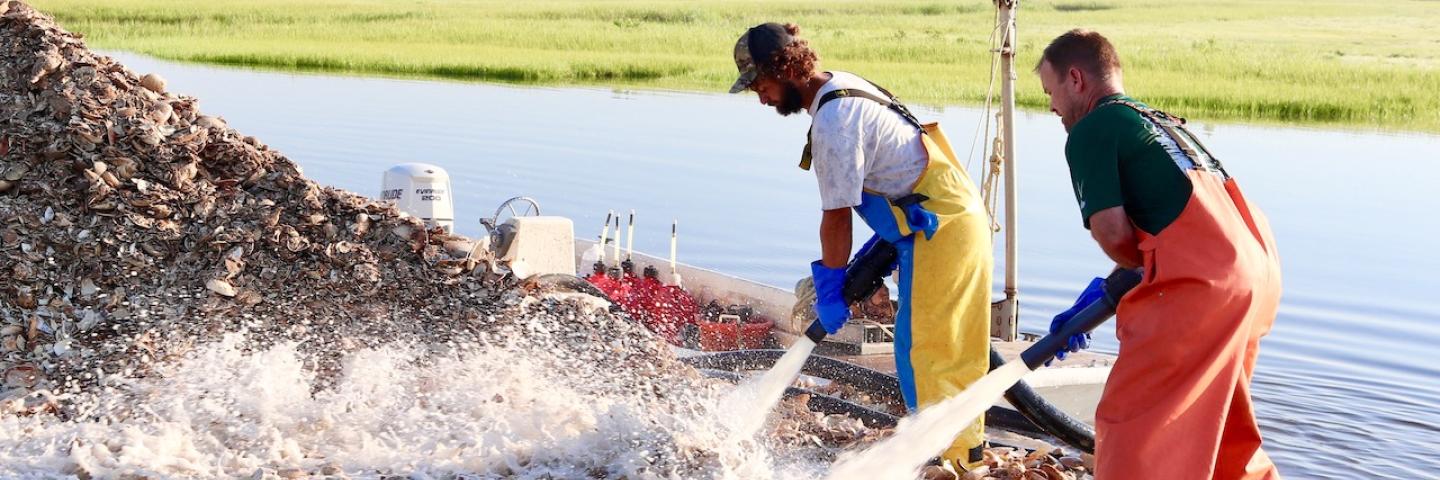
Aquaculture is the production of aquatic organisms under controlled conditions throughout part or all their lifecycle. Its development can help meet future food needs and ease burdens on natural resources.
NRCS-NJ offers financial and technical assistance for conservation practices related to shellfish aquaculture, oyster reef habitat restoration, and finfish aquaculture through the Environmental Quality Incentives Program (EQIP). All conservation practices available through EQIP are approved for the Aquaculture Initiative.
Conservation Practices
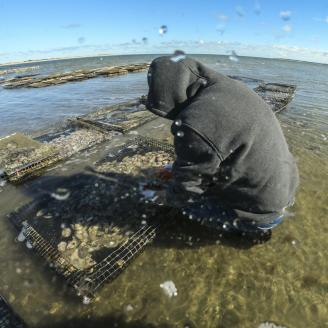
Gear Cycling
This practice is used to reduce, clean, or remove biofouling organisms and other waste from bivalve production areas. Fouled gear is brought on shore, air dried, and cleaned at an approved off-site location.
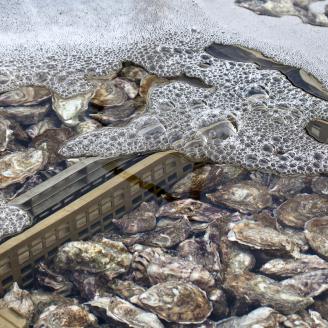
Rack Replacement
Wildlife movement can be inhibited by the oyster production racks. Wildlife (especially horseshoe crabs) may be trapped beneath the racks during low
tide and unable to reach nesting habitat on shore. NRCS can aid replacement of existing oyster racks with new racks built and installed to the appropriate height (minimum 12 inches) and spacing to allow for wildlife movement under and around racks.
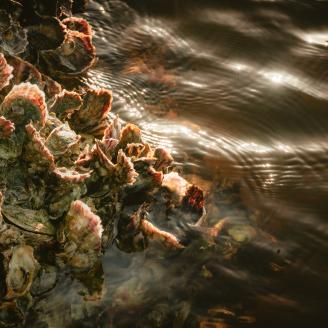
Oyster Bed Restoration or Enhancement/Replenishment
Successful oyster growth occurs on beds that have a firm substrate. Land used for aquaculture production that needs improvement to the bottom for
spat on shell and wild oyster production may qualify for oyster bed restoration assistance.

Shoreline Protection
Prevent the loss of land or damage to banks of streams, lakes, reservoirs, or estuaries (does not apply to ocean fronts). Vegetation and bioengineering treatments are used to stabilize low risk areas.
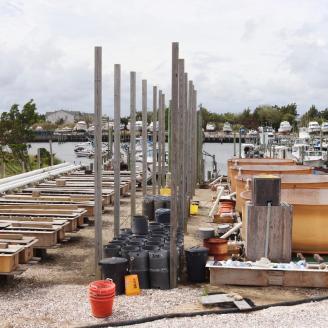
Agricultural Energy Management
Financial assistance is available to inventory and analyze farm systems that use energy and identify opportunities to improve efficiency through the development of an Agricultural Energy Management Plan (AgEMP). The AgEMP, or energy audit, is completed by NRCS-certified Technical Service Providers (TSPs) and provides:
- Itemized energy use by individual systems to establish a baseline for electricity and other fuel improvements,
- Recommendations for equipment improvements and upgrades,
- Potential energy reductions and financial savings for each recommendation
- Cost estimates of potential improvements, and
- Length of expected payback for energy efficiency upgrades
Other Supported Practices Include:
-
Constructed Wetland
-
Energy Improvement Heavy Use
-
Lighting System Improvement
-
Waste Storage Facility
Regional Conservation Partnership Program (RCPP) Project: NJ COASTAL Aquaculture Project
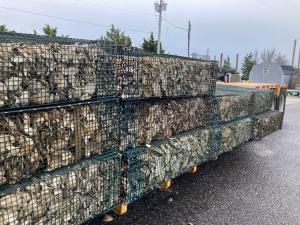
The Ocean County Soil Conservation District was awarded a 2022 Regional Conservation Partnership Program (RCPP) project to enhance aquatic habitat on shellfish leases and improve water quality throughout the Coastal Bays of New Jersey by increasing producer participation in NRCS conservation programs. RCPP funding will be used to increase regional shellfish aquaculturist participation in oyster reef creation. Project success will be evaluated through documentation of oyster growth and/or spat set increases coupled with estimating oyster filtration rates.
Find more information on this project and learn how aquaculturists can get involved: NJ COASTAL Aquaculture Project


